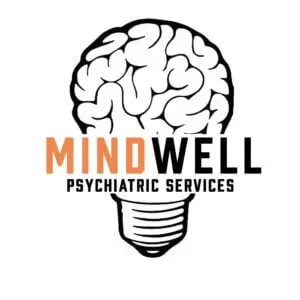Psychiatric-tailored meds are transforming how we treat mental health conditions. Specifically, precision psychiatry creates personalized medication plans based on your unique genetics, symptoms, and life experiences. At Mindwell Psychiatric Services, we believe that one-size-fits-all treatment doesn’t work for mental health. Instead, we craft individualized approaches that help you thrive.
Understanding Your Mental Health: The Foundation of Psychiatric Tailored Meds
Let’s dive straight into the real talk. Mental illness isn’t something to sweep under the rug or be embarrassed about. Think of your mental health like your very own mental empire – vast, complex, and ever-changing. We all have one, and just like any empire, it can face challenges. Consequently, mental illnesses like anxiety, depression, or bipolar disorder are part of this empire, like the valleys and peaks in a landscape.
Your mental empire isn’t a sign of weakness; rather, it’s a testament to your strength and resilience. It’s a territory marked by thoughts, emotions, and experiences. Furthermore, mental illnesses are like storms that can sweep through this empire, causing havoc. Therefore, understanding and acknowledging them is the first step in finding a path to healing and strength.
The Role of Genetics in Psychiatric Tailored Meds
Now, let’s talk genetics, the DNA of your mental empire. Essentially, it’s like your family tree of mental wellness. Genes play a crucial role in how your mental empire functions. For instance, if mental illness runs in your family, it’s like having a specific architectural style in your blueprint. Understanding this genetic foundation is like having a treasure map – it guides us in crafting psychiatric-tailored meds just for you.
However, here’s the important thing – genes aren’t destiny. They’re like the building blocks of a structure, but what you do with them matters. Specifically, your lifestyle, environment, and experiences shape how these genetic predispositions express themselves. Genetic testing can help identify the best medications for your unique genetic makeup.
Additionally, environmental factors, like stress, trauma, and lifestyle choices, also influence your mental health blueprint. Imagine your mental health as a garden. Life experiences can be like the weather – sometimes sunny, sometimes stormy. Trauma might be like a wildfire, but resilience is your ability to rebuild and grow anew. Just as a garden thrives or wilts depending on what it’s exposed to, your mental empire can flourish or face challenges based on your environment.
Debunking Medication Myths: The Truth About Psychiatric Tailored Meds
Time to bust some myths about psychiatric-tailored meds. Worried they’ll turn you into a zombie? Nonsense! Medications are like the tools in your mental empire’s toolkit. They don’t erase your personality; instead, they’re the keys to unlocking your full potential. These tailored meds are designed to tackle specific challenges within your mental health.
Furthermore, psychiatric medications come in various forms, each with its own unique purpose and mechanisms of action. For example, selective serotonin reuptake inhibitors (SSRIs) can boost your mood by increasing the availability of serotonin, a neurotransmitter associated with happiness and well-being. Similarly, antipsychotic medications help manage symptoms of conditions like schizophrenia. Meanwhile, mood stabilizers are used to prevent the extreme mood swings seen in bipolar disorder.
It’s crucial to understand that psychiatric-tailored meds aren’t one-size-fits-all solutions. Your psychiatrist carefully evaluates your symptoms, medical history, and genetic makeup to prescribe the most appropriate medication for your unique needs. Additionally, don’t worry about the myths – these medications aren’t about altering who you are but rather helping you navigate your mental landscape more effectively.
Beyond Pills: A Holistic Approach to Mental Health
However, we’re not putting all our bets on pills alone. Instead, we’re exploring the vast arsenal of strategies that complement psychiatric tailored meds.
Therapy as Your Trusted Guide
First, imagine therapy as your trusted advisor, guiding you through the twists and turns of your mental health journey. Therapists are like experienced explorers who’ve navigated similar terrain before. Consequently, they help you understand the map of your mind, uncovering hidden treasures and addressing the obstacles in your path. Whether it’s cognitive-behavioral therapy (CBT), dialectical-behavioral therapy (DBT), or talk therapy, these approaches provide valuable insights and coping strategies.
Lifestyle Changes as Your Foundation
Second, lifestyle changes are the foundation stones of your mental fortress. Think of them as the pillars that support your mental health. For instance, exercise is like the strong foundation that keeps your mental empire stable. It releases endorphins, the body’s natural mood lifters, and reduces stress hormones like cortisol. Additionally, maintaining a balanced diet provides your mind with the nutrients it needs to function optimally.
Self-Care as a Necessity
Third, self-care isn’t a luxury; rather, it’s a necessity for maintaining mental health. It’s about prioritizing your well-being, just as you would care for the gardens and structures within your empire. Specifically, self-care includes activities like getting enough sleep, practicing relaxation techniques, setting healthy boundaries, and engaging in hobbies you enjoy. These acts of self-compassion can help lift the heavy veil of mental illness and strengthen your mental fortress.
Your Support Network
Finally, in your mental health journey, you’re not alone. Your support network is like a group of loyal allies, standing strong beside you. Friends, family, support groups, and mentors can provide essential emotional support. They’re the cavalry in your battle, reinforcing your defenses and offering a helping hand when needed.
How Mental Health Practitioners Craft Your Psychiatric Tailored Meds Plan
Now, imagine a mental architect, a mental health practitioner who’s a master at crafting personalized treatment plans. They’re like the Leonardo da Vinci of your mental landscape, using precision psychiatry to customize psychiatric-tailored meds just for you. Your genetics, life experiences, and unique needs are all pieces of this intricate puzzle. With a mental health practitioner’s guidance, you’re not just navigating your mental health; you’re designing it to thrive, conquer challenges, and stand the test of time.
The Treatment Planning Process
Here’s how a psychiatrist crafts your personalized plan:
Comprehensive Assessment: First, your journey begins with a comprehensive assessment. This isn’t a one-size-fits-all approach; instead, it’s about getting to know you, your history, and your unique mental landscape. The mental health practitioner asks questions, listens to your experiences, and collaborates with you to understand the challenges you’re facing.
Diagnosis and Understanding: Second, they work on diagnosing any mental health conditions that may be affecting you. This isn’t about putting labels on you; rather, it’s about understanding the patterns of thoughts, emotions, and behaviors that are at play. With a clear diagnosis, the mental health practitioner can pinpoint the areas that need attention.
Tailored Treatment Plan: Third, with a diagnosis in hand, the mental health practitioner crafts a tailored treatment plan. This plan isn’t just about medication; instead, it’s a holistic approach that considers your entire mental landscape. It may include therapy, lifestyle changes, and medication management when necessary.
Medication Management: Additionally, if medication is part of your treatment plan, the mental health practitioner carefully selects the right psychiatric-tailored meds based on your diagnosis, genetics, and any potential side effects. They monitor your progress and make adjustments as needed.
Therapeutic Guidance: Furthermore, therapy is another essential tool in your treatment toolkit, and your mental health practitioner can recommend the right therapeutic approach for you. Whether it’s cognitive-behavioral therapy (CBT), psychoanalysis, or another modality, therapy helps you explore your mental landscape effectively.
Education and Empowerment: Moreover, your mental health practitioner isn’t just a treatment provider; they’re an educator and an advocate for your mental health. They explain your diagnosis, treatment options, and how to navigate the challenges ahead. Consequently, they empower you with knowledge, helping you become the steward of your own well-being.
Ongoing Support: Finally, mental health isn’t a one-and-done deal. Your mental health practitioner provides ongoing support, ensuring you continue to thrive. They’re there to answer your questions, address concerns, and make adjustments to your treatment plan as needed. You’re not alone on this journey; you have a trusted partner by your side.
Conclusion: Your Path to Better Mental Health
In conclusion, with a mental health practitioner’s guidance, your mental health becomes a masterpiece, a resilient fortress that can weather the storms of life. It’s not about erasing challenges; instead, it’s about equipping you with the tools and strategies to conquer them.
Therefore, as you embark on your journey toward mental well-being, remember that you have a skilled architect in your corner, ready to help you design a treatment plan that stands strong and thrives. Contact Mindwell Psychiatric Services today to learn more about psychiatric tailored meds and precision psychiatry.
According to the National Institute of Mental Health, personalized treatment approaches are becoming increasingly important in psychiatric care, offering better outcomes for patients with various mental health conditions.




